Northumbria is a research-intensive university that unlocks potential for all. We change lives through education and research, tackling the global challenges of our age to transform society.
Northumbria has transformed in recent years combining a focus on research excellence and social mobility, challenging the status quo to become a new kind of University. In celebration of our transformation and to support our ambitious plans we launched our Vice Chancellors Fellowship scheme, appointing the first cohort of exceptional academics, who have joined a range of disciplines across the University, all listed below.
Our Vice-Chancellor’s Fellows are each shaping their individual and collaborative fields of research, and are aligned to one of the University discipline areas or Research Peaks of Excellence.

Dr Justin Andrushko
Justin's
research is focused on improving health outcomes for individuals that have
suffered an orthopaedic or neurological injury primarily affecting one side of
the body. Justin’s primarily research interest is in understanding the neural
mechanisms of the cross-education effect; where exercising one side of the body
elicits a positive benefit to the same muscle group on the opposite side of the
body. Though mechanistic investigations Justin aims to identify how we can
maximise the effectiveness of cross-education and determine how best
cross-education can be implemented to improve rehabilitation outcomes after
injury.
Research Profile
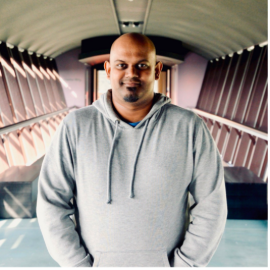
Dr Girish Beedessee
Girish completed his PhD in the field of
computational genomics at the Okinawa Institute of Science and Technology where he
surveyed genomic and transcriptomic
events in dinoflagellates. He was then a Herchel Smith fellow at University of Cambridge, where he
employed biophysical, biochemical and computational approaches to understand
DNA organisation in dinoflagellates. Girish is mainly interested in evolutionary
processes that drives secondary metabolism. His
research focuses on a larger group of microorganisms (protists) and their role
in ecological settings with respect to their adaptation and lifestyles.
Research Profile

Dr Vanessa Bettinson
Vanessa’s main research focus is embedding understandings of
domestic abuse, particularly coercive control, in the criminal law and criminal
justice system. As an academic lawyer she uses doctrinal, socio-legal and
comparative approaches in her work. Her work is aligned with the Gender Violence
and Abuse IDRT, where she sits on the Management Board, and she has
collaborated with external organisations and academics in relation to
interdisciplinary projects in the field of domestic violence and abuse. Vanessa
has provided written evidence to the parliaments of Westminster and Scotland
during the debates for legal reform introducing coercive control offences and
she is now exploring the challenges of accessing defences by coerced and
controlled victims who commit crimes either against their abusers or because of
their abusers.
Research Profile

Dr Thomas Cheney
Thomas's research fellowship develops the notion of ‘life as a frontier’ borrowing from Vannevar Bush’s “Endless Frontier” to look at astrobiology, biotechnology and space colonization. This work engages with key questions for the law and governance as developments reshape our understanding of life and humanity’s relationship to and with ‘nature’. This work builds on his previous work with AstrobiologyOU and is grounded in legal geography and the environmental humanities. It critically examines the foundations of the space governance regime, specifically the concept of the ‘space frontier’ and as a ‘frontier’.
Research Profile
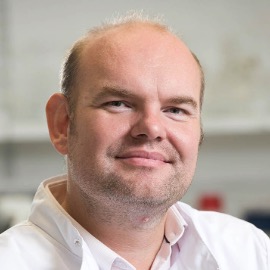
Prof Martyn Dade-Robertson
Martyn Dade-Robertson is a Professor of
Emerging Technology at Northumbria University where he specialises in Design
Computation with a special interest in emerging technologies particularly
Synthetic Biology. He was a founder and Co-Director or the Hub for
Biotechnology in the Built Environment (HBBE), a new research centre
integrating design, biology and engineering to develop new 'living' buildings.
He has degrees in Architectural Design, Architectural Computation and Synthetic
Biology. He is the author the book: The Architecture of Information published
by Routledge in 2011. He is currently the editor for the Routledge book series
on Bio Design and has completed the first book Living Construction in 2020 and
the editor in Chief for the Cambridge University Press journal Biotechnology
Design. He leads the Living Construction group with Prof. Meng Zhang.
Research Profile

Dr
Rasheedat Modupe Mahamood
Dr Rasheedat
Modupe Mahamood is a Vice chancellor Fellow- Assistant Professor in the
Department of Mechanical and Construction Engineering in the Faculty of
Engineering and Environment. Her
research interests is in Advanced Manufacturing technology such as Additive
Manufacturing/3D Printing, Laser and Friction Stir Welding, development and
characterisation of advanced composite and functionally graded materials for
Biomedical and aerospace application, and Renewable energy. Dr Mahamood
has B.Eng. in Mechanical Engineering, M.Eng in Mechanical Engineering and PhD
in Mechanical Engineering. She is passionate about research and love to
collaborate with colleagues to bring about innovative solutions to present day
Engineering problems.
Research Profile
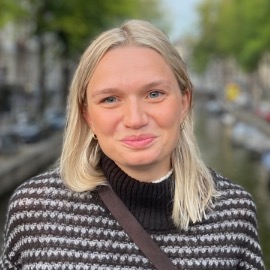
Dr Olivia Mason
Olivia's research seeks to better understand the environmental
legacies of colonialism and to improve the lives of rural communities,
especially Bedouin, in the Middle East affected by environmental changes. I am
an interdisciplinary scholar whose work sits across cultural,
environmental, (post)colonial, and political geography and to date has mostly
been focused on Jordan. Currently it is centred around two themes: 1) mobility
politics, especially how movement is conditioned by situated cultural politics
and 2) resource colonialism, including the entanglements of resource scarcity
with (post)colonial politics. Olivia is currently working on an ESRC funded research
project looking at the resource politics of nature reserves in Jordan, this
includes policy work to improve conditions for rural communities in Jordan
impacted by environmental policies.
Research Profile

Dr Graham McClelland
Graham is a paramedic by background and his research interests encompass
all aspects of prehospital care and paramedic practice. Graham was awarded a
fellowship by The Stroke Association to complete his PhD which explored
paramedic identification of stroke mimics. The Stroke Association also funded
further work looking into prehospital timelines with stroke patients and the
potential to use telemedicine to improve emergency stroke care. Graham is a
fellow of the College of Paramedics, a member of the College research committee
and sits on the editorial board of the British Paramedic Journal.
Research Profile

Dr Henry Miller
A historian
whose research has been funded by the Leverhulme Trust, AHRC, and ESRC, Henry
has a broad interest in social history and political culture in modern Britain
and beyond. His recent and current research revolves arounds the history of
petitions and petitioning and has addressed important questions within social
and political science concerning representation, democracy, and collective
action from a historical perspective. For his future research, Henry plans on
developing collaborative projects concerning the role of petitions within
imperial and post-colonial contexts and the local history of democracy in
Britain over the past two centuries.
Research Profile
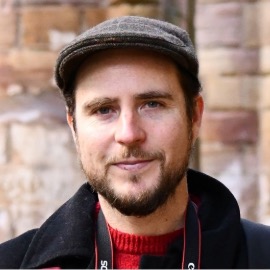
Prof Guy Jackson
Guy Jackson is an interdisciplinary social
scientist exploring human-environmental relations by examining disasters,
climate change, and environmental change. He has published widely in leading
interdisciplinary journals, with a growing track record of high-impact
research. His postdoctoral work has primarily focused on theoretical and
empirical research on the political, economic, and cultural dimensions of
climate change loss and damage. Throughout the Vice Chancellor’s Fellowship, he
will primarily work on two international projects on power and politics in
cross-scale climate change adaptation and climate change immobilities. Guy is a
member of various networks, such as the Loss and Damage Collaboration
(L&DC) and the African Loss and Damage Network (ALADAN).
Research Profile
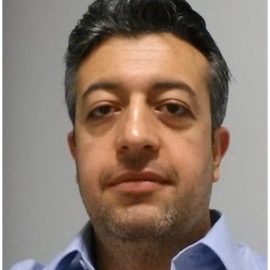
Dr Giray Kartopu
Giray Kartopu is a Vice-Chancellor Fellow
appointed in 2023 and currently serves as an Assistant Professor in Physics
within the Faculty of Engineering and Environment. His research focuses on
Energy Materials, with a visionary goal to enhance the performance of emerging
thin film solar cells through innovative nano-engineering techniques. Dr.
Kartopu aims to scale up these advancements for product- and
building-integrated solar photovoltaic (PIPV, BIPV) applications. He authored
over 60 research papers and contributed to 3 book chapters in the field of thin
films and nanotechnology.
Research Profile

Prof Richard Robinson
Richard joined
Newcastle Business School in 2024, after 19 years at The University of
Queensland, Australia, before which he enjoyed an 18-year career as a chef.
Specialising in services employment and work, his projects have investigated
the tourism, hospitality, leisure, transport, retail and welfare/social service
sector contexts in the formal, gig and grey economies. His research has been
funded by fellowships, competitive research grants, corporations,
not-for-profits, industry peak associations, governments, and international
agencies - and explore themes such as fair, safe and sustainable work, mental
health and wellbeing, careers and vocations, training and development.
Research Profile

Prof Emiliano Renzi
Emiliano is Professor of Industrial
Mathematics in the Mathematics for Complex and Nonlinear Phenomena (MCNP)
Group. His fundamental research in analytical and computational modelling
underpins the development of advanced mathematical techniques to study partial
differential equations and their applications to linear and nonlinear waves. His work informs the design of novel
technologies that will enable coastal cities to become energy self-sufficient
and to better protect their population and infrastructures from coastal
hazards, exacerbated by raising sea levels and storminess due to climate
change. Emiliano enjoys a strong track-record of
successful collaborations with experts in other disciplines (e.g., meteorology,
geophysics, engineering) and non-academic partners, such as Met Office, British
Geological Survey, Aquamarine Power Ltd.
Research Profile

Dr Rodrigo
Vitório
Dr Rodrigo
Vitório’s research is focused on better understanding the neural correlates of
mobility impairments and developing enhanced assessments and interventions. His
projects combine portable brain imaging technologies (e.g., EEG/fNRS), movement
analysis (e.g., inertial sensors) and neurophysiology (e.g., motor-evoked
potentials) to identify people at risk of falling and brain areas suitable to
be targeted by interventions. His Vice-Chancellor’s Fellowship aims to develop
non-invasive brain stimulation (e.g., tDCS) as a treatment option for mobility
impairments in people with Parkinson’s disease.
Research Profile

Dr Rachel Warriner
Rachel is an art historian interested in the relationship between
political activism and art. Looking at challenges to art’s institutions, the
role culture plays in conflict, and the politics of gender and sexuality in the
art world, my research examines the politics of art’s production. I have
published on feminist art and poetry in The Oxford Art Journal, The Irish University Review, Courtauld Books Online, Muße, and The
Journal of British and Irish Innovative Poetry and co-organised the Courtauld's Gender and Sexuality
Research Group. Rachel's book Pain and Politics in Postwar Feminist Art: Activism in the Work
of Nancy Spero was published by Bloomsbury in 2023.
Research Profile

Dr Hongyan Xia
Dr. Hongyan Xia is a Vice-Chancellor’s Fellow
and an Assistant Professor at the Department of Applied Science, Northumbria
University at Newcastle. She is a member of the Royal Society of Chemistry.
Before joining Northumbria University, she was a Marie Skłodowska-Curie
Research Fellow at the University of Edinburgh. Her research experience covers
a wide range including, design and synthesis of functional molecules and
polymers, fabrication of polymer microstructures, research on colour and
emission changes of materials and their applications for information display
and storage and study of stimuli-responsiveness for sensors.
Research Profile

Dr Steph Yardley
Steph is an STFC Ernest
Rutherford Fellow and Vice-Chancellor’s Fellow in the Solar and Space Physics
Group at Northumbria University. Her research focuses on understanding the
physical processes underlying solar activity and space weather. In particular,
solar phenomena that can drive hazardous space weather conditions in the
near-Earth environment such as coronal mass ejections (eruptions of magnetised
plasma), energetic particles accelerated during these eruptions, and the solar
wind (continuous flow of particles from the Sun). Alongside her research, she is
actively involved in public engagement, media and outreach activities aimed at
various audiences from school students to the general public.
Research Profile

Dr Qiuji Yi
Qiuji's research focus on multi-dimensional data processing/feature extraction and
fusion, data-driven twin modelling and inversion analysis. One
of his papers about proposing an automatic
delamination detection framework using Kernal Principal Component is the most
cited work in the top journal. Qiuji is currently developing and delivering an
agreed personal research plan and participating in institutional and
collaborative research, with industry stakeholders (Rolls-Royce, GKN aerospace
and the National Composite Centre), and other University partners (TU Delft,
UESTC, Newcastle University). He is also actively looking for research funding
opportunities. Qiuji is particularly excited about advancing fundamental AI
capabilities while addressing pressing engineering needs in Manufacturing and
Maintenance, such as AI for non-destructive testing and structural health
monitoring. He is looking forward to exploring these multidisciplinary problems
with collaborators from academia and industry.
Research Profile



















